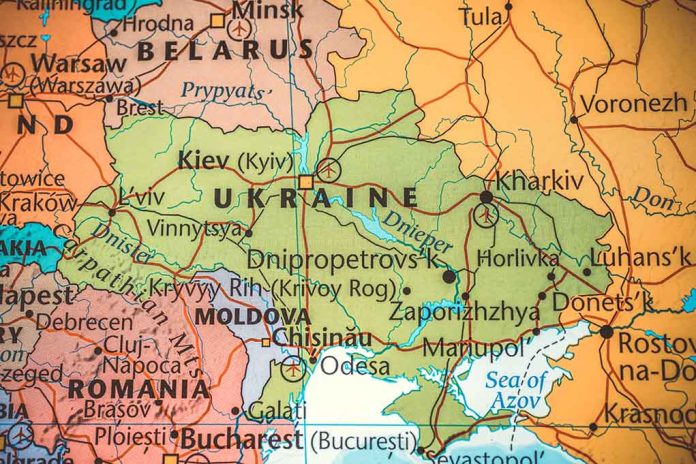
Secretary of State Marco Rubio issued a stark ultimatum on Ukraine-Russia peace talks, warning that the Trump administration may abandon mediation efforts within days if no substantial progress is made.
Key Takeaways
- Secretary Rubio stated that the US may withdraw from Ukraine-Russia peace efforts if progress isn’t made “within a matter of days,” emphasizing “it’s not our war.”
- The Trump administration’s patience is waning with both Ukrainian President Zelensky and Russian President Putin in the ongoing negotiations.
- A decisive meeting in London next week will determine America’s continued involvement in peace efforts.
- The US and Ukraine are simultaneously negotiating a significant deal for access to Ukraine’s mineral resources, linked to the broader peace initiative.
- European allies remain concerned about President Trump’s potential closeness to Russia as peace talks continue.
Trump Administration Sets Deadline for Progress
Secretary of State Marco Rubio delivered a clear message following talks in Paris with Ukrainian and European officials: the United States is rapidly approaching its limit with the stalled peace process. Speaking to reporters, Rubio made it clear that President Trump’s administration is prepared to walk away from mediation efforts if substantive progress isn’t made quickly. The talks in Paris were described as constructive, with no outright rejections from any parties, but the clock is now ticking on meaningful advancements.
“We are now reaching a point where we need to decide whether this is even possible or not. Because if it’s not, then I think we’re just going to move on,” Rubio stated bluntly. “It’s not our war. We have other priorities to focus on.” This position represents a significant shift from the Biden administration’s approach, which viewed Russia’s actions in Ukraine as part of a broader imperial expansion threatening democratic nations globally.
Secretary of State Marco Rubio: "The Ukraine war is a terrible thing but it's not our war…The president has spent 87 days at the highest level of his government, repeatedly taking efforts to bring this war to an end. We are now reaching a point where we need to decide and… pic.twitter.com/ibwLh5Q950
— Mr Producer (@RichSementa) April 18, 2025
Diplomatic Ultimatum with Strategic Implications
The urgency in Rubio’s statements reflects President Trump’s campaign promise to swiftly end the conflict that has raged since Russia’s February 2022 invasion. A decisive meeting scheduled for this week in London will likely determine whether American diplomatic efforts continue or if the administration shifts focus to other global priorities. Trump has reportedly expressed growing frustration with both Ukrainian President Zelensky and Russian President Putin for what he perceives as insufficient commitment to reaching a resolution.
While diplomatic efforts intensify, Russia continues military operations against Ukrainian cities. Recent attacks in Sumy and Kharkiv have resulted in civilian casualties, highlighting the urgent humanitarian need for a resolution. The Kremlin, through spokesman Dmitry Peskov, acknowledged ongoing “complex negotiations” between Russia and the United States, stating: “Russia is striving toward resolving this conflict, securing its own interests, and is open to dialogue. We are continuing to do this.”
Resource Deals and Allied Involvement
Parallel to peace negotiations, the United States and Ukraine are approaching completion of a significant deal giving America access to Ukraine’s valuable mineral resources. This agreement appears strategically linked to broader peace efforts and represents an important economic dimension of the relationship. American envoy Steve Witkoff has met with Putin multiple times while leading peace efforts alongside Rubio, indicating the high-level engagement the Trump administration has dedicated to resolving the conflict.
European allies, particularly the United Kingdom, France, and Germany, have been described as helpful partners in the negotiations, though they have voiced their concerns about Trump’s approach to Russia. Vice President JD Vance expressed optimism about ending the war during separate talks in Rome, reinforcing the administration’s commitment to finding a diplomatic solution despite the looming deadline. While Ukrainian President Zelensky continues to warn about Russia’s broader threat to democracy and NATO territories, the Trump administration appears focused on achieving a pragmatic resolution rather than an ideological confrontation.









